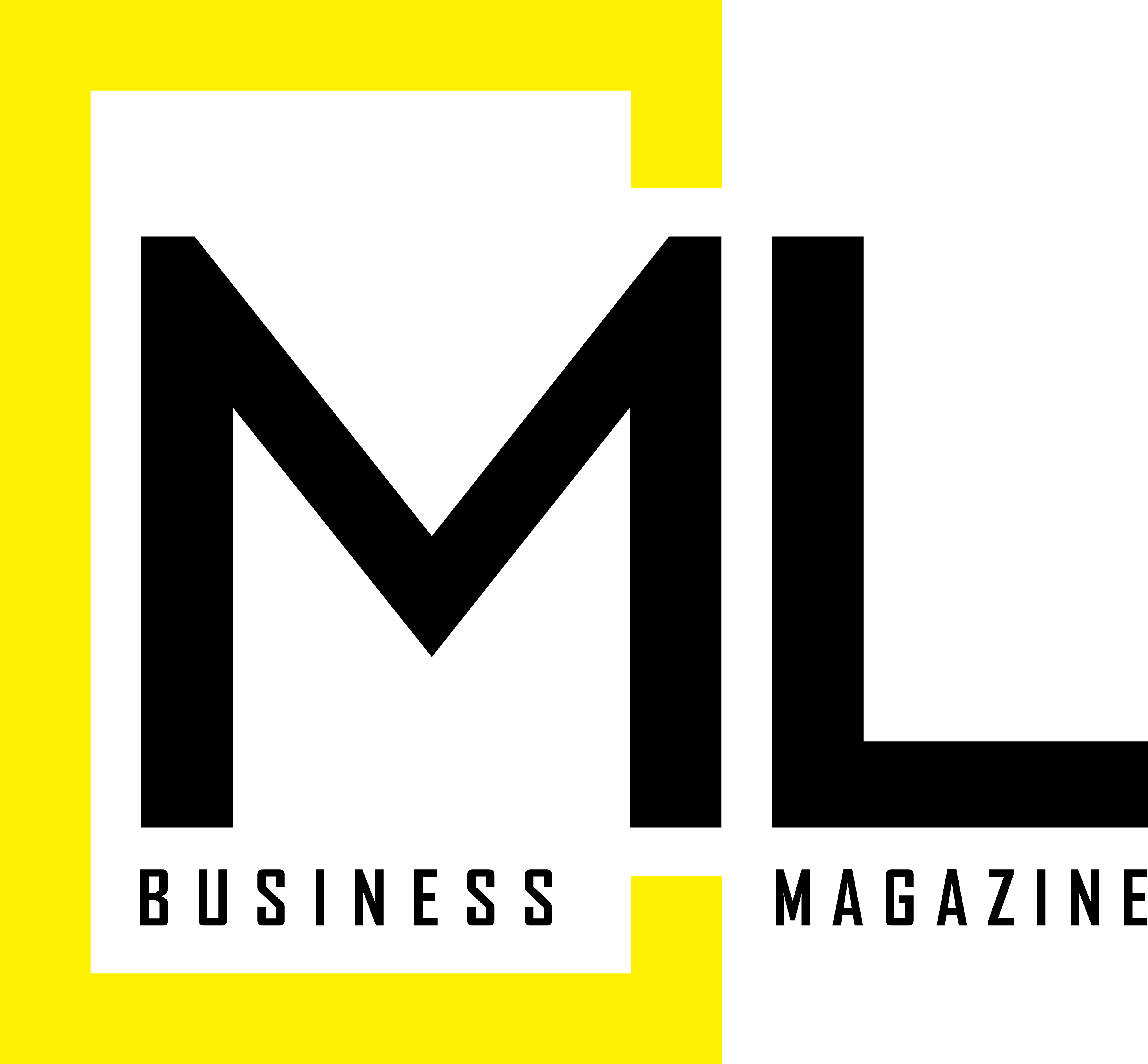Ainur Akhmetova: Sharing Means Inspiring and Changing LivesAinur Akhmetova: Freedom in Business Opens New Horizons
Ainur Akhmetova is an inspiring businesswoman who shares her experience in entrepreneurship. Ainur holds a Bachelor’s degree in International Law, a Bachelor’s degree in Finance, and a Master’s degree in Banking and Financial Law, graduated from Boston University. She is also the managing partner of the international law firm AKHMETOVA Law Firm Limited. Additionally, Ainur was awarded the titles of Mrs. Eurasia European Nations and Mrs. European Nations Curve Globe 2024. In this interview, she talks about how her perception of entrepreneurship has evolved over time, as well as about her projects and real-life stories.
What event in your life was the turning point in becoming an entrepreneur?
Well, the entrepreneurial spirit has probably always been within me. However, after 20 years of legal practice, especially in the international field, I was sometimes scared that I might fail, that I wasn’t sure if I could run a business. But, as often happens in my life, everything worked out magically. Whenever I had doubts, answers, opportunities, and sources appeared in the most amazing ways to help me move forward. This transition from the legal profession to entrepreneurship became a magical process for me. I learned to trust this inner feeling and allowed myself to grow, accepting challenges and unlocking my potential.
What key skills and qualities helped you achieve success in business?
For me, the foundation has always been organization and discipline. I have a clear understanding of my goals and, importantly, why I want to achieve them. Quality is a core principle for me. I never do anything just for the sake of it; it’s important that everything I undertake is of the highest standard. My team knows very well: that if we take on a project, the result must be “top-notch.”
Perfectionism and the “A-student syndrome,” as it’s often called, played their part. They helped me set high-quality standards in my work. For me, it’s important that everything is done perfectly, and I simply don’t know how to lose. This is not only about professional but also personal growth. I’m always curious about how I’ll overcome the next challenge because, in the end, I’m always competing with myself.
Of course, my experience working in major international law firms like Dentons and Integrites provided me with invaluable knowledge and skills. In such companies, the quality standards are incredibly high, and working 24/7 is the norm. This develops your brain, your habit of learning, and continuous growth. When you’re involved in major international deals and projects, there’s no room for error — only maximum focus and quality.

Another important aspect is education. Studying in school with top grades and earning three higher degrees with honors became the foundation for me. School taught me to achieve goals and do everything with high quality and on time. Every time you get high grades, you train yourself to be the best. Now, it’s a part of me, and I simply can’t do it any other way.
What makes your approach to entrepreneurship unique?
The uniqueness of my approach to entrepreneurship lies in the fact that I saw it as a creative process from the very beginning. When I entered the business, I realized it was 100% creativity — just like in the legal profession, where I always viewed a lawyer’s work as an art. But in entrepreneurship, this creative approach reaches a new level.
One of the key aspects of my uniqueness was that I knew the market from the inside, understood my product, recognized my team’s capabilities, and had a clear vision of what I wanted to achieve and how to do it. It was also important to me not only what and how we do things but also where and how we work.
I decided that my team could work from anywhere in the world. The idea of keeping top-quality lawyers in an office from 9 to 6 seemed not only expensive but also inefficient. It affected the results. So I told my team: “Our only task is to deliver quality work on time. Where you do it is irrelevant. Whether it’s on the Moon or in Bali — it doesn’t matter as long as there’s a result.” And that’s how it works. I have a large team of 19 people: some live in Bali, as they’ve dreamed of, others work from Turkey or London. I can be anywhere in the world while still managing projects.
What challenges did you face on the way to building a successful business?
This challenge was mostly in my head. As people often say, our entire life happens in our consciousness. For me, it was an inner challenge—to figure out where I was going and what I was doing. I had to agree with myself on a mental level that I allowed myself to be a cool manager, a founder, a business owner, and an investor. At one point, I felt like I might be stepping away from my core profession, but then came the realization: my legal experience doesn’t disappear, it’s not forgotten, it’s not lost. I proved to myself that I’m still an excellent lawyer, but now I’ve also become an even better manager, capable of organizing any project — both my own and my clients’.
The main challenge was this inner dialogue. In my head, I kept hearing voices from my mom, dad, and other authoritative figures who had always been employees. Their fears around entrepreneurship also affected me. They didn’t see my path as successful. For them, working for someone else was considered “successful,” but running your own business. This became the biggest challenge — to convince myself that their fears were not mine.
Family members often don’t support you because they’re used to seeing you in a specific role, and any attempt to “take off” can cause resistance. When you rise, they too must learn to rise with you. This was my main challenge — to overcome inner doubts and fears imposed from the outside and allow myself to be who I want to be.
How do you manage to balance your personal life and your entrepreneurial work?
You know, there’s a saying: “Find something you love to do, and you’ll never work a day in your life.” For me, it’s not about work — I simply live. Everything is intertwined: personal life and entrepreneurship have become part of the same whole. For example, today I have a massage, then yoga, the gym, and a meeting — it’s not just a schedule, it’s my life, its rhythm.
I don’t separate where work ends and personal life begins because, for me, they are a natural continuation of one another. I wake up in the morning, start with meditation and yoga, catch the right state of mind, anchor it, and then create from that state. This manifests in everything, even in how I dress. I change several looks a day, and I need to look and feel great. Each new piece of clothing or stylish accessory adds freshness and inspiration. I truly believe that beauty and love will save the world.
For me, balance is a dance, and I call it tango with the Universe and the Almighty. In this dance, I trust completely; I don’t question anything related to the Universe. But, as in any dance, I have my part — my actions, thoughts, and decisions that move me forward. This is balance — a seamless blend of work, creativity, and personal life.
My work doesn’t follow a strict schedule. For example, Monday is a day off for me — I don’t like starting the week with business tasks. But on Tuesday afternoon, Wednesday, and Thursday, those are my “work” days when I focus on projects and planting ideas. By Friday afternoon, I’m already in relaxation mode. So, I actively “work” three days a week, but for me, it’s more about a creative process that brings joy.
When it comes to my personal life, it is inseparable from my social life. I am actively improving my communication skills with men, going on dates and travelling. When I am travelling, I am constantly meeting and getting to know different people. Everything else that needs attention I delegate. I have two children. My daughter lives on her own, she is about to turn 20, but we are always in touch.
Our nanny Elmira has helped my son Arthur, who’s been with us for two years and fully embraces my lifestyle. Arthur is a brilliant child, thriving in an ideal environment, going to kindergarten, taking part in sports, and attending various activities. Household chores are managed by Lena, who has been helping me maintain an immaculate home for six years. Everyone on my team knows their tasks and completes them on time. This is how I balance personal life and entrepreneurship.

What important decisions or strategies have proven most successful in your business?
First, I call it my personal “MBA,” which I earned through my own business, with my own money. In 2023, I faced a crisis. As I say, I “plunged” into a 47-million deficit. My team literally stood up and left. Some even threatened to file complaints with the labor inspectorate or other agencies. It was an incredibly stressful time, so much so that my son and I ended up on the street, and our belongings were thrown out of the house. We returned to my home, which wasn’t in the city center.
I realized that I had attracted this situation for a reason. It was something I needed, and I’m very grateful for it. It was a painful but important growth experience. I re-evaluated my business and my approach to it, becoming more realistic about people and circumstances. That’s when my faith in the Universe, in a Higher Power, solidified, and I understood that I can’t control everything. The only thing I can do is act in the present moment, here and now. I see the situation, find a solution, and act.
The fear of being more of a manager now than a practicing lawyer was also significant. I had to manage 28 ongoing projects while taking on new ones to break even and continue living. At that time, I took on a major project that literally pulled me out of the crisis. I wrote a massive legal opinion myself, and as I immersed myself in the work, I was incredibly grateful for it. That’s when I realized that you can’t lose the skills and experience of a highly qualified international lawyer — it stays with you forever.
After all of this, I restructured the business and established a new strategy for working with the team. We focused on deadlines and quality. I had previously tried to build relationships with the team based on friendship, but experience showed that it didn’t work. Employees are employees; the team is the team. We can be friendly, I can be a mentor, but we are not friends. This clearly allowed me to stop any whims and establish a strict work system.
Now I only work with senior professionals, each responsible for their junior colleagues. This has allowed me to reduce time and energy dispersion. I’ve also tied their work to outcomes. We handle cool, large, and complex projects, and our clients have high expectations. Everything is now clearly organized and automated.
How do you see entrepreneurship evolving over the next 5-10 years, and how are you preparing for this future?
I see entrepreneurship evolving over the next 5-10 years in the following way. Given the modern realities, such as the development of technology, fintech, and artificial intelligence, I hope we will soon transition to an era where entrepreneurship becomes a fully creative endeavor, limitless in its possibilities.
Many processes will be automated, and in the future, there may be no need for employees to handle routine tasks. For example, in the fields of buying and selling, as well as in providing services like legal work, we may face automation to such an extent that human lawyers won’t be needed to provide legal services. Everything will be processed through AI, electronic courts, and smart contracts, simplifying and speeding up processes.
Over the next 5-10 years, it’s crucial to keep up with the trends. What seems new and complicated may feel inaccessible, but in reality, many innovations are quite understandable and available. The key is not to fear new things but to implement them in business. For example, we’ve already partially integrated artificial intelligence into our legal practice, allowing us to speed up certain processes.
Thanks to this technological development, I’ve built in my business so that I can be anywhere in the world, as can my entire team. This allows us to work effectively and adapt to changes while ensuring high-quality services.
What motivates you to continue working on new projects, despite the challenges?
What motivates me to continue working on new projects is their scale and significance. We are engaged in large, substantial, countrywide projects, and they are incredibly interesting in and of themselves. I’m inspired by the final result: what we deliver to the client, how it impacts the country, and improves people’s lives. It’s especially gratifying to know that our projects can contribute to Kazakhstan’s economic development and improve lives overall.
Right now, we’re planning a major project tentatively called “Әділ сот” (Fair Court). This project is especially important to me because I want to dedicate it to the memory of my late mother, who worked as a judge for 35 years and was recognized as Kazakhstan’s best judge. She was also awarded the “Құrmet” Khairullina Kaniya Usenovna medal, and always fought for justice and the status of judges in our country. In her memory, I strive to continue her work and implement this project, which I hope will bring positive changes to society.
How has your perception of business changed since the start of your career?
Since the start of my career in 2004, my perception of business has changed significantly. At that time, the conditions for doing business were different, and the overall atmosphere of entrepreneurship was not the same as it is today. I transitioned from employment to business and felt true freedom — freedom of action, freedom of thought, and the ability to take a creative approach to projects, especially in the legal field.
Now, I believe that this is the perfect time for business, especially for women entrepreneurs. The government actively supports entrepreneurship, offering many grants, subsidies, and programs, which is very inspiring. This creates favorable conditions for business development and opens up new opportunities.
When working with clients, I see that many of them have a general understanding of their projects but need help realizing them. In this context, we, as lawyers, play a crucial role in connecting their ideas with practical solutions. We help not only bring their vision to life but also adapt it to real-world conditions, taking into account all legal aspects.
In the end, I’m proud that I left employment and entered the business world, where I’ve been able to create an environment where I can work without limitations, implementing ideas and solutions that truly help people and businesses grow.

Do you have a story where you saw how your influence truly changed someone’s life for the better?
I have more than one story where my influence has changed people’s lives for the better. I believe that sharing is very important. I share my knowledge, energy, and support, and when I do, I receive numerous responses from people who tell me how they were motivated to make positive changes in their lives.
One story involves social housing that I built — a small project of mine. These are affordable homes where families can live in cleanliness, comfort, and warmth. Over the 15 years of owning this property, many families have passed through my houses, and what I’m most proud of is that all of them moved out because they improved their living conditions—moving into their own homes or apartments.
One family, in particular, stands out. They couldn’t have children for seven years, but after living in my housing, they became parents to three children. It’s incredibly inspiring! I built these homes as a single mother, working hard to make them a reality, even driving a taxi at night to support my daughter and fulfill my dreams.
I’m proud of my desire to create comfortable living conditions for people and see their success. I continue to develop this project and hope that it will continue to make a positive impact on people’s lives.
Company Website: www.alfl.kz
Interview prepared by: Yuliya Yarmarkina



